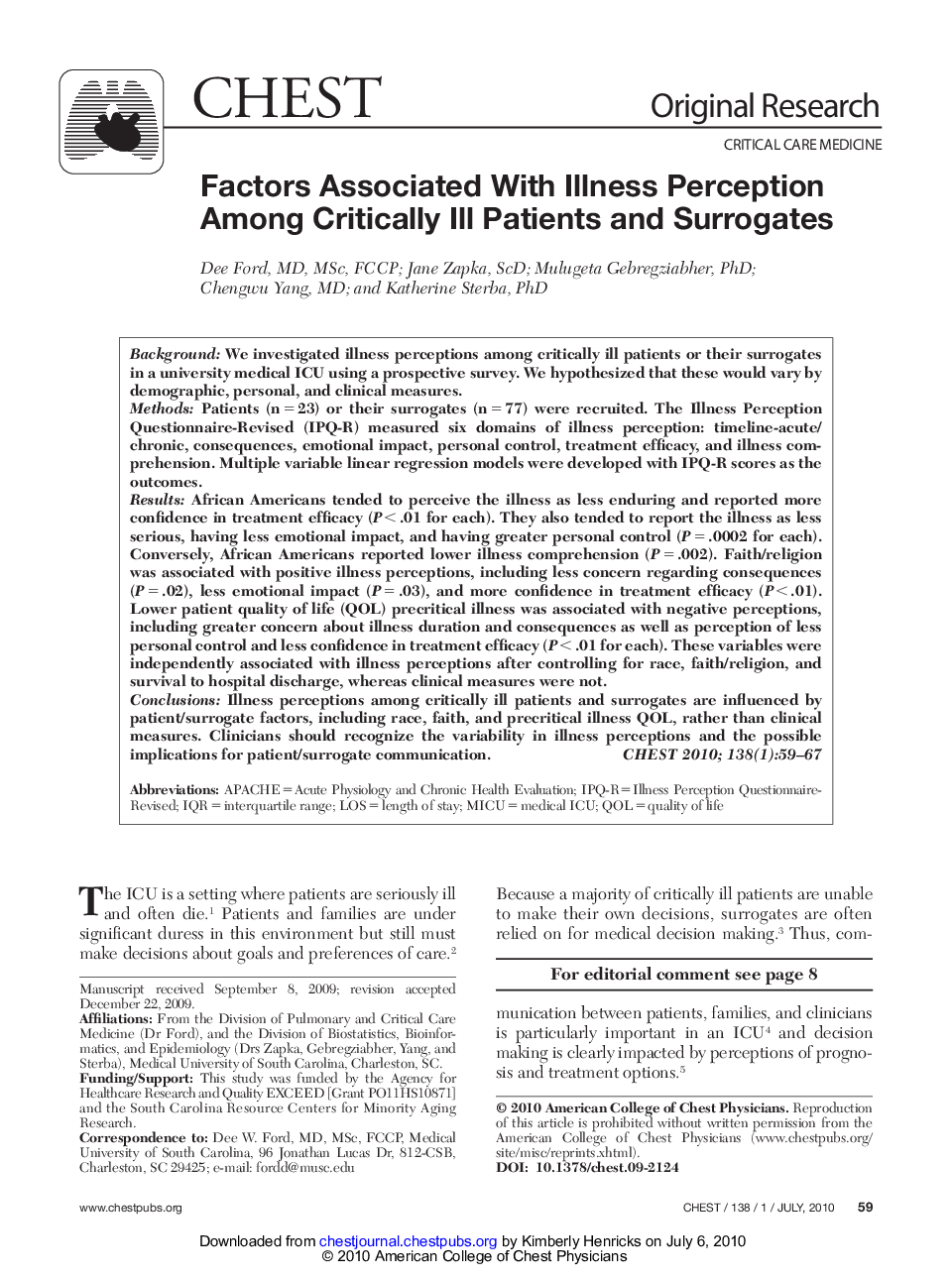| کد مقاله | کد نشریه | سال انتشار | مقاله انگلیسی | نسخه تمام متن |
|---|---|---|---|---|
| 2903674 | 1173396 | 2010 | 9 صفحه PDF | دانلود رایگان |

BackgroundWe investigated illness perceptions among critically ill patients or their surrogates in a university medical ICU using a prospective survey. We hypothesized that these would vary by demographic, personal, and clinical measures.MethodsPatients (n = 23) or their surrogates (n = 77) were recruited. The Illness Perception Questionnaire-Revised (IPQ-R) measured six domains of illness perception: timeline-acute/chronic, consequences, emotional impact, personal control, treatment efficacy, and illness comprehension. Multiple variable linear regression models were developed with IPQ-R scores as the outcomes.ResultsAfrican Americans tended to perceive the illness as less enduring and reported more confidence in treatment efficacy (P < .01 for each). They also tended to report the illness as less serious, having less emotional impact, and having greater personal control (P = .0002 for each). Conversely, African Americans reported lower illness comprehension (P = .002). Faith/religion was associated with positive illness perceptions, including less concern regarding consequences (P = .02), less emotional impact (P = .03), and more confidence in treatment efficacy (P < .01). Lower patient quality of life (QOL) precritical illness was associated with negative perceptions, including greater concern about illness duration and consequences as well as perception of less personal control and less confidence in treatment efficacy (P < .01 for each). These variables were independently associated with illness perceptions after controlling for race, faith/religion, and survival to hospital discharge, whereas clinical measures were not.ConclusionsIllness perceptions among critically ill patients and surrogates are influenced by patient/surrogate factors, including race, faith, and precritical illness QOL, rather than clinical measures. Clinicians should recognize the variability in illness perceptions and the possible implications for patient/surrogate communication.
Journal: Chest - Volume 138, Issue 1, July 2010, Pages 59–67